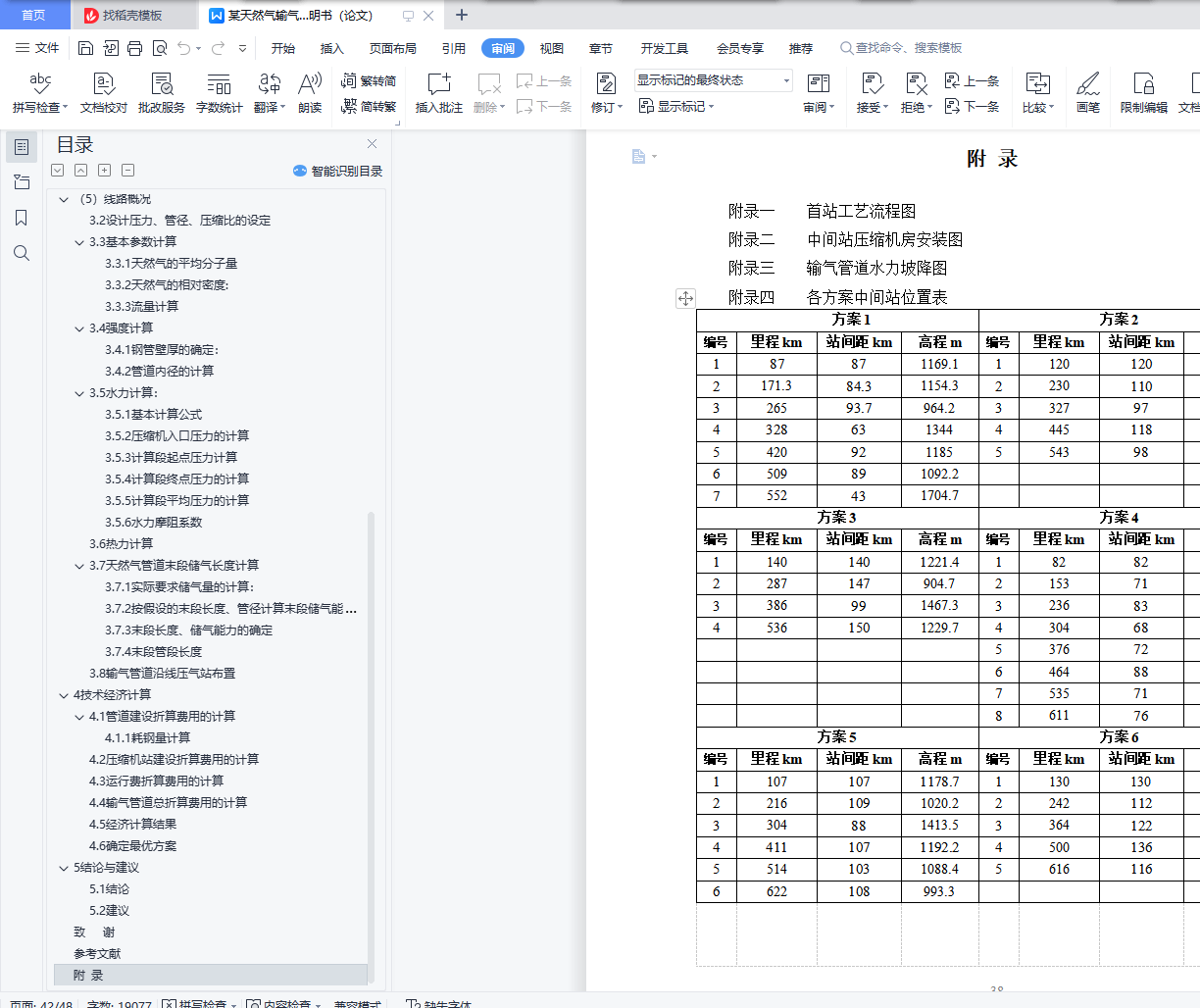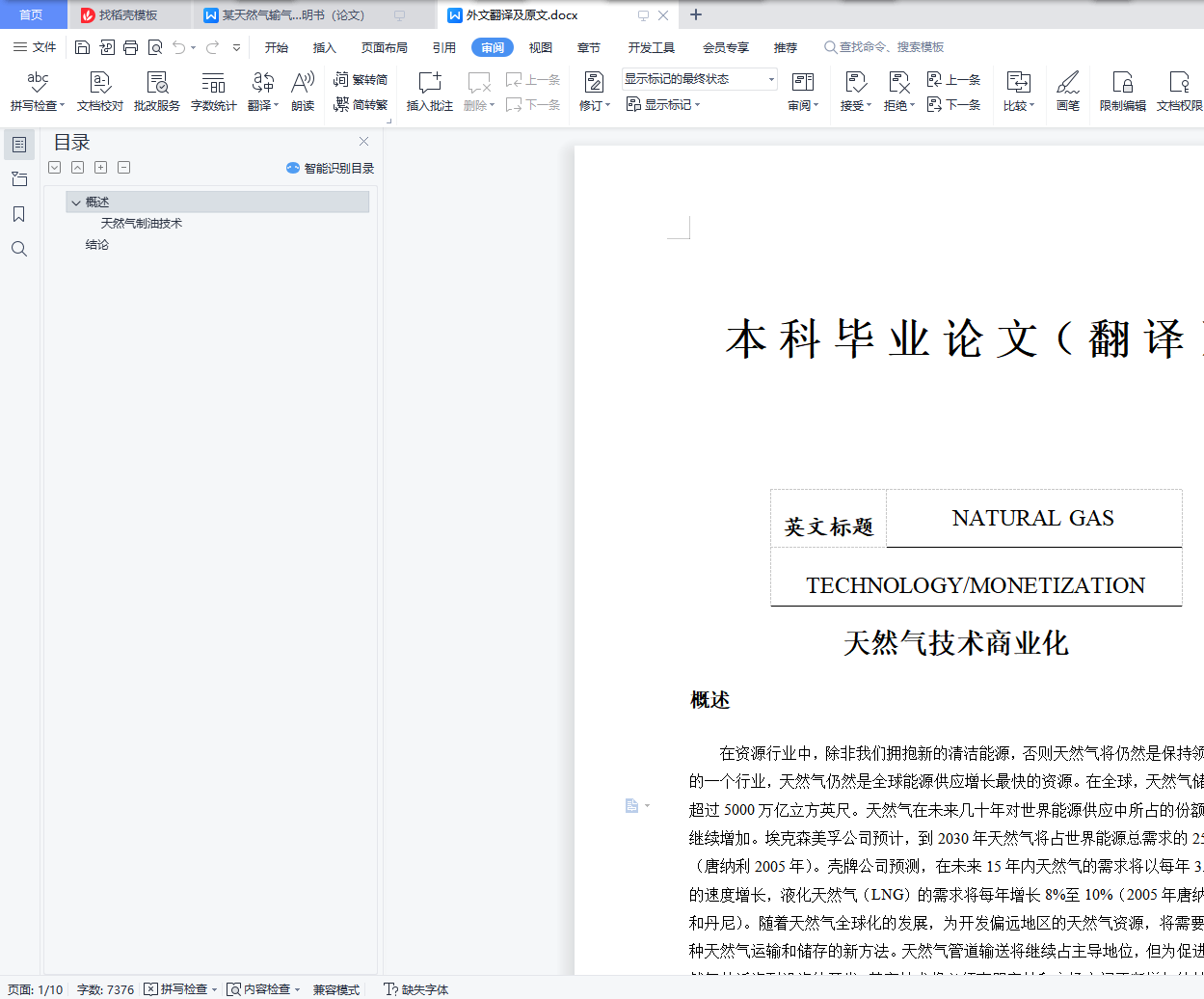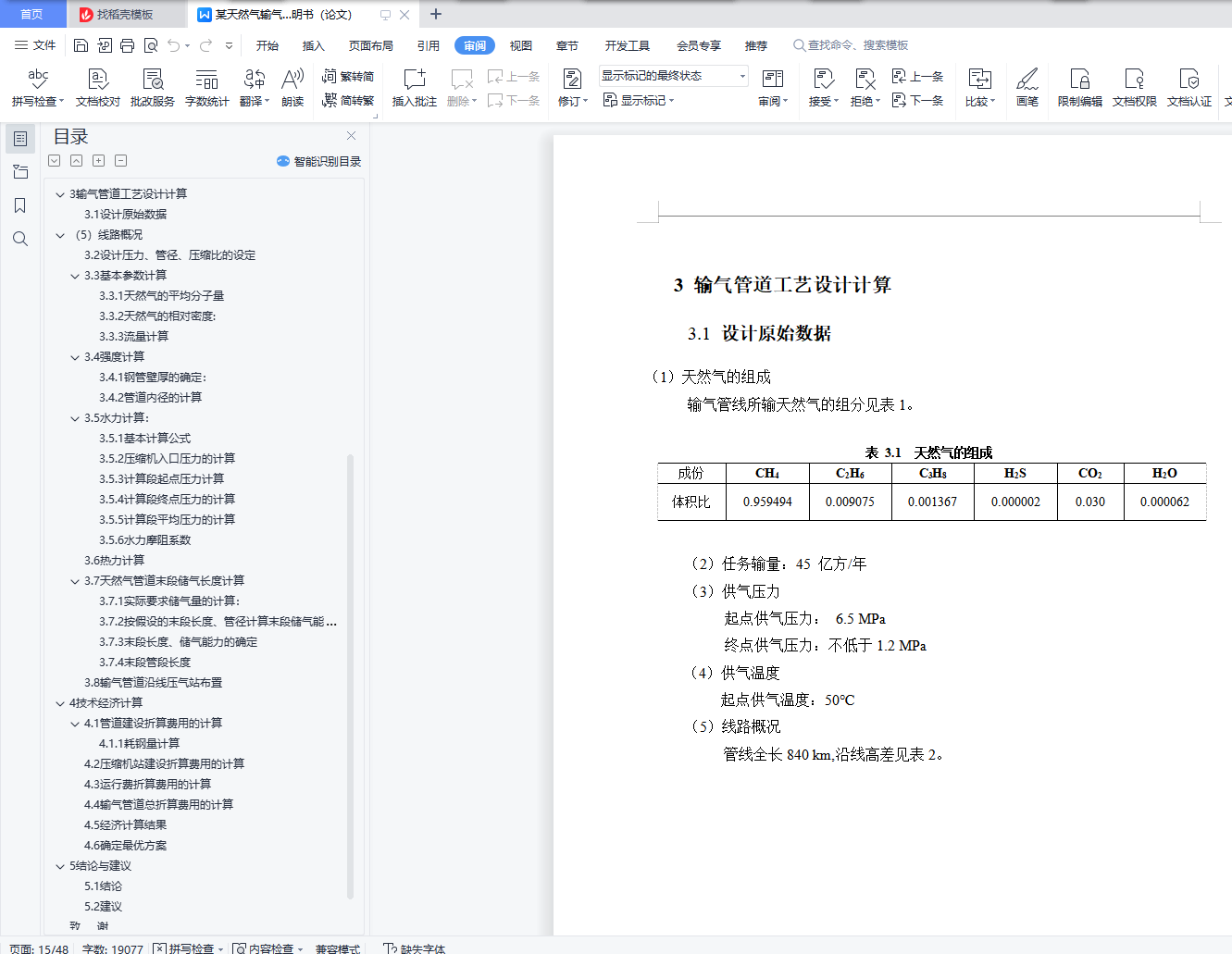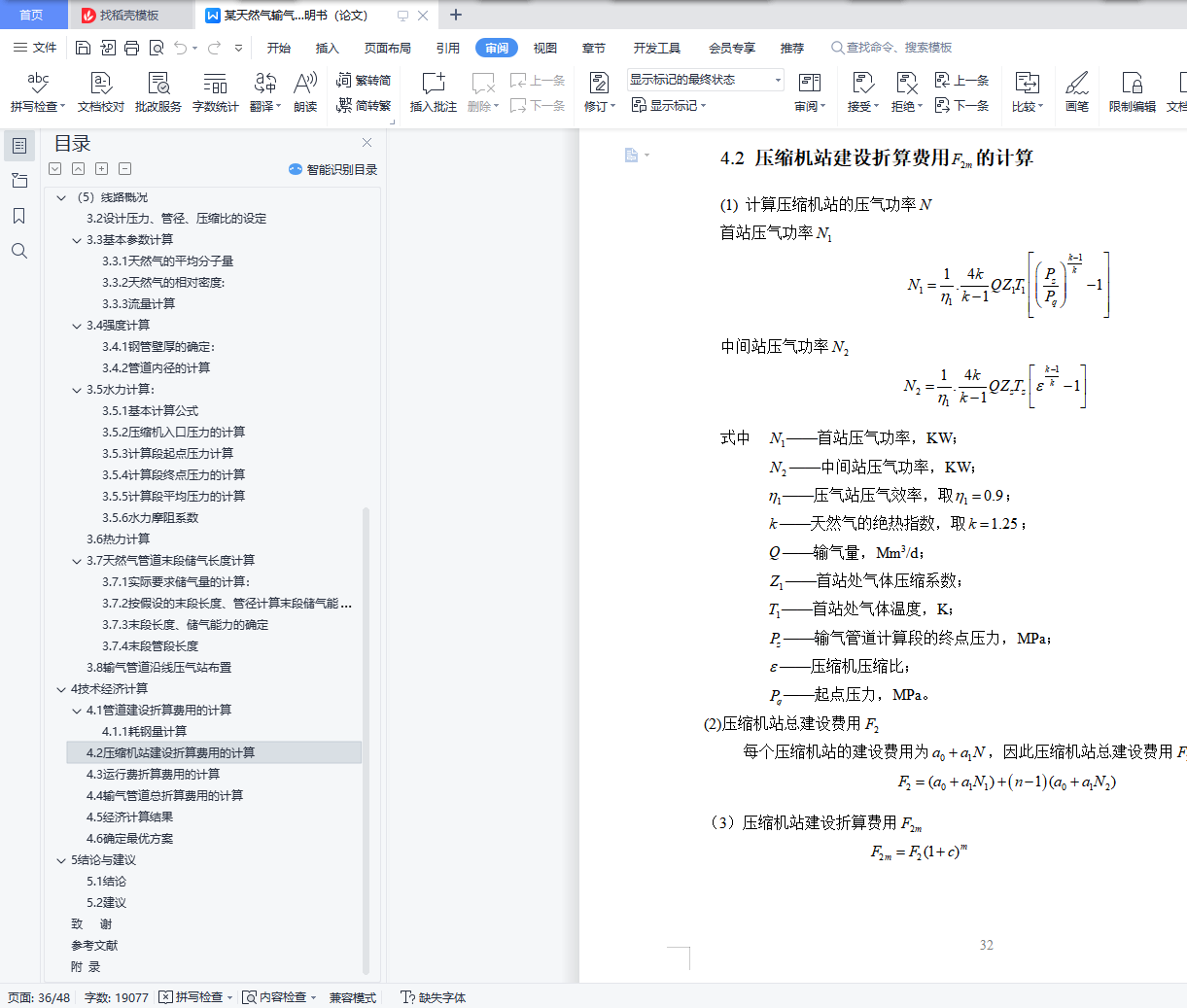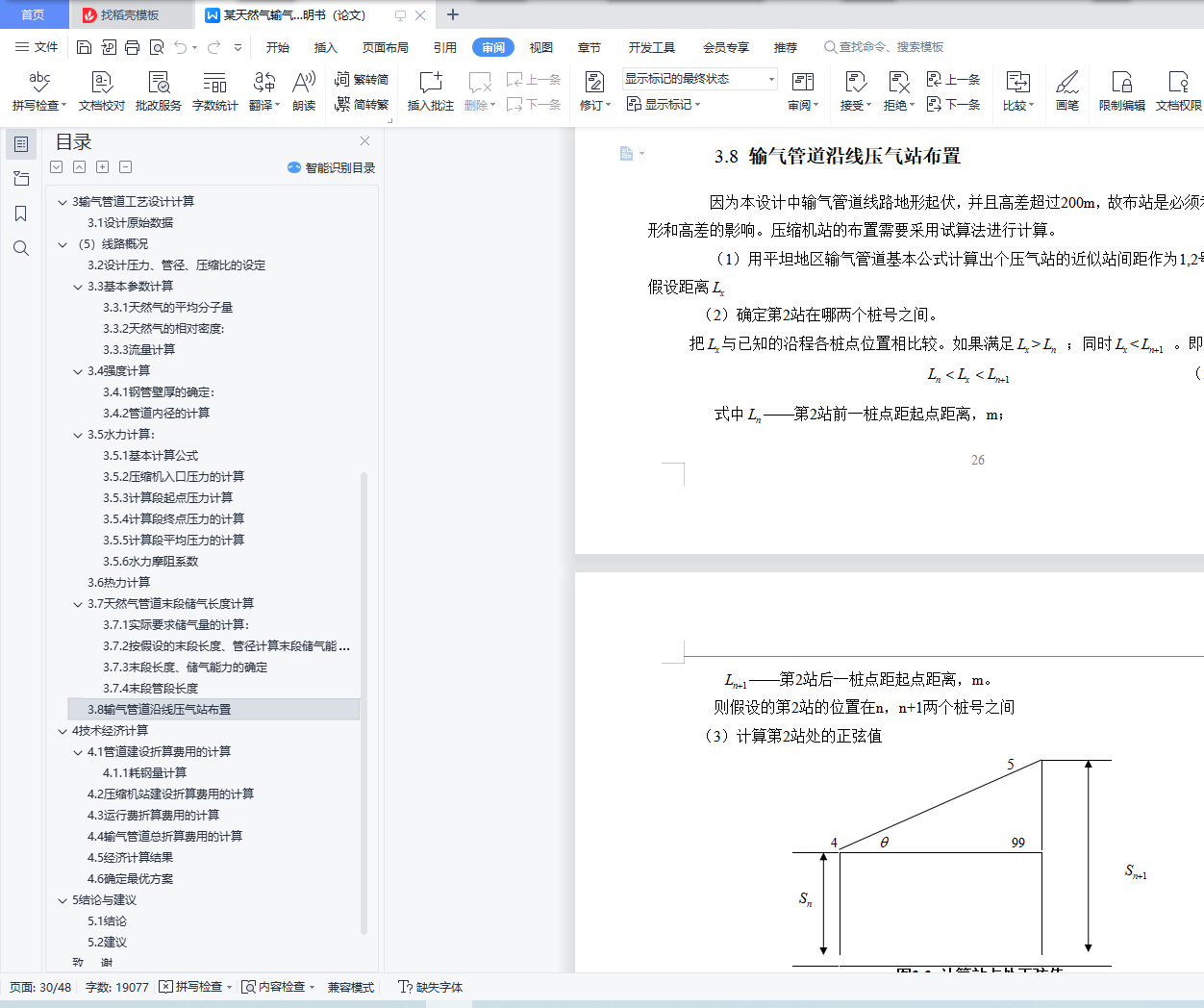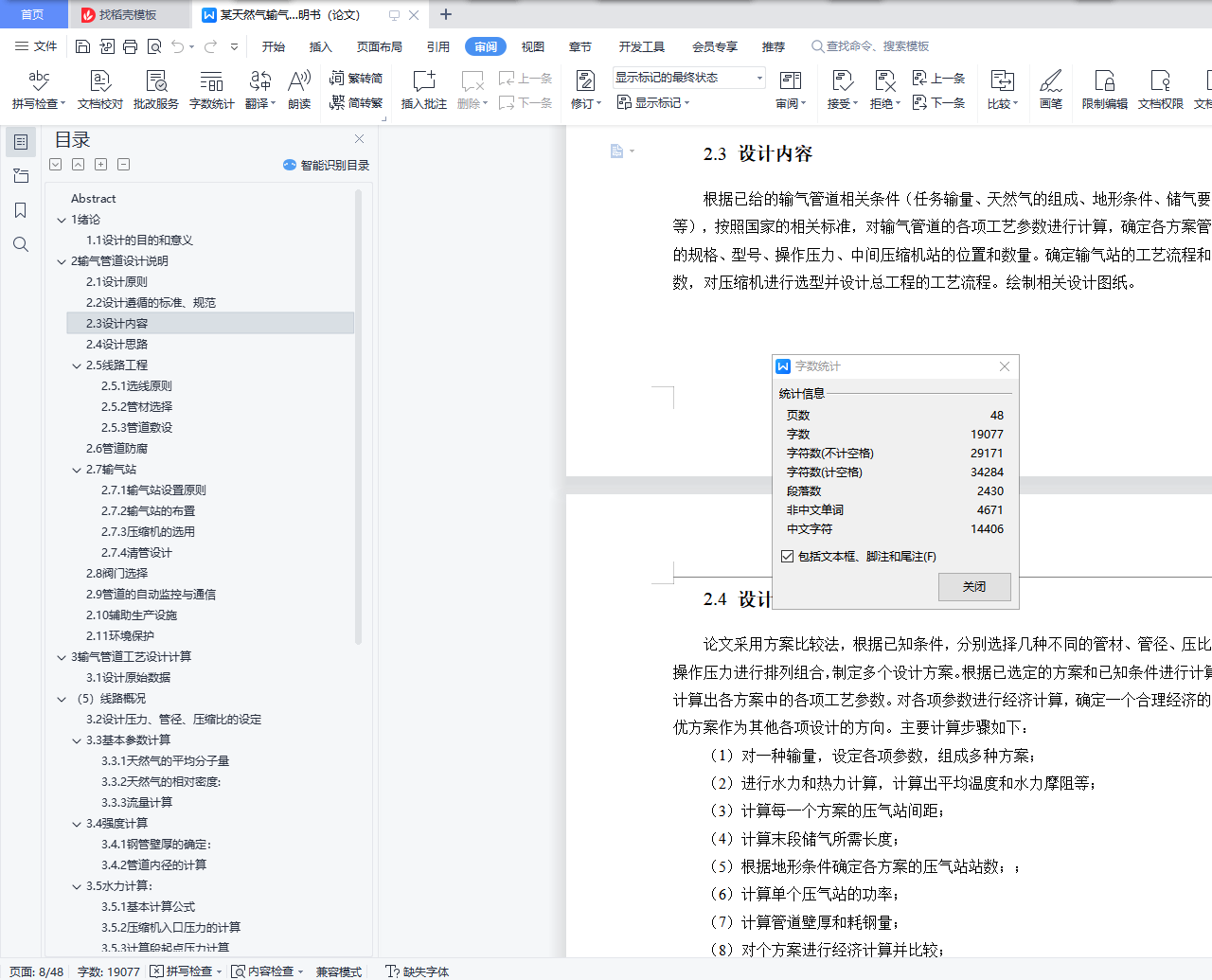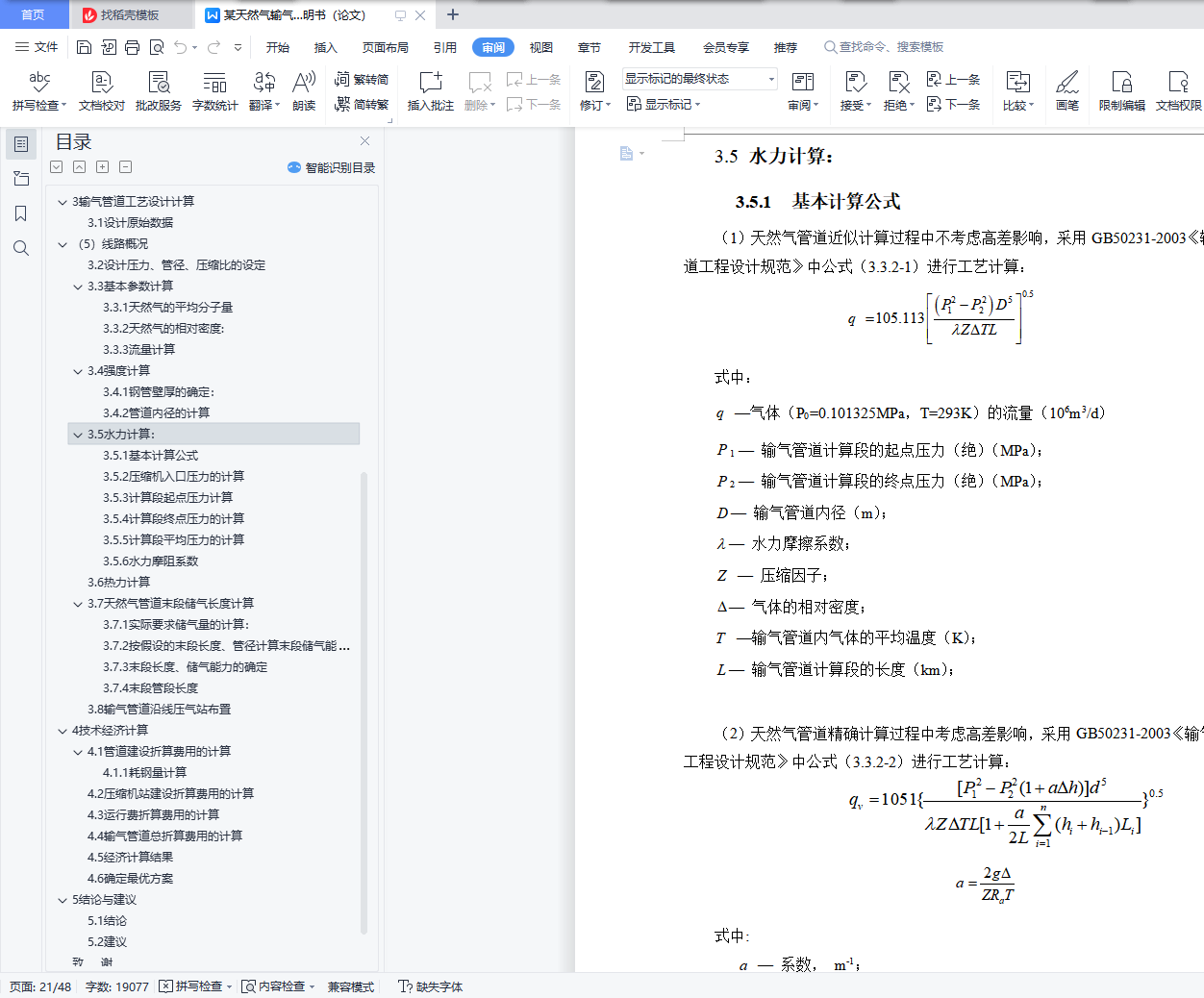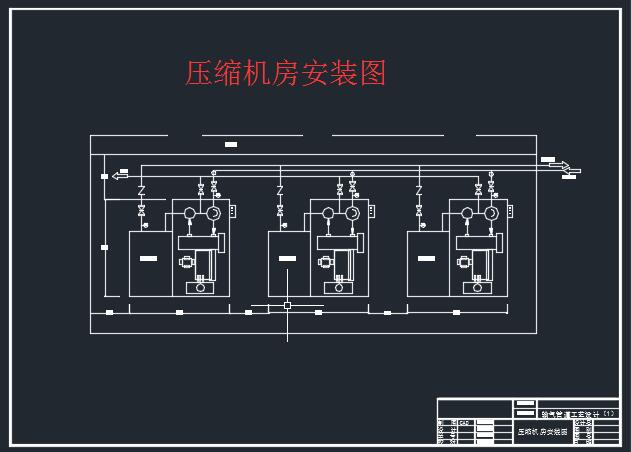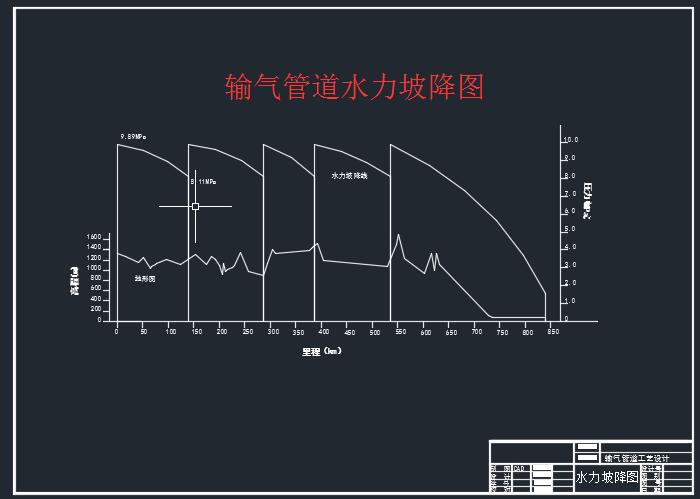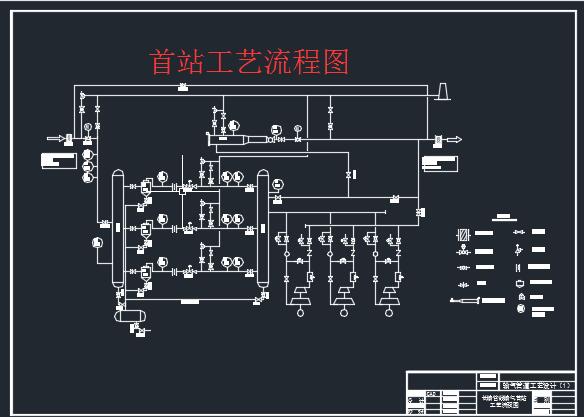摘 要
近年来,随着能源结构的改善和优化,天然气这种清洁的能源得到了迅猛发展。我国区域地区能源资源赋存量与区域地区发展水平很不匹配,特别是东部沿海地域与中西部地区的能源生产与能源消费存在着显著差异。为适应世界能源发展趋势,实现可持续发展的需要,因此加快天然气管道的建设速度是一个必须的过程。本文根据一定的工作条件(输量、操作压力和操作温度)、地形条件和用气条件,计算出一条可以满足要求并合理经济的输气管线的各项工艺条件。本文以各项国家现行有关标准、规范为基础,通过对比已有的工程为参考,进行管道的选材和选型以及操作压力和压比的选择,设计出数组不同的设计方案。本文对各个方案进行对比计算,根据热强度计算,计算出各方案所需要的管道壁厚,工程建设所需的耗钢量;根据热力计算和水力计算,分别计算出不同管径、压力下的平均操作温度和水力摩阻,然后根据输气管道的基本公式求出各段地区的站间距,从而确定压气站的数量。根据现有的钢材价格、建设费用以及其他材料费用等,对各个方案的建设和操作费用进行经济计算,对比各个方案后,选择出最优的方案,为管道的设计和建造提供基础。
论文任务输量为45 亿方/年,全线长840km,给定沿线高差和终点供气系数。根据各项国家现行有关标准进行粗略计算,选择了18个预选方案,对各方案分别进行了热力计算、强度计算、水力计算和经济计算。选择出了一个最优方案,方案的管径为660mm、操作压力为10MPa、压比为1.25、中间站共4个。
关键词:输气管道;水力计算;热力计算;经济计算
Abstract
In recent years, with the optimization and improvement of energy structure, the natural gas is developing rapidly as clean energy . The regional endowed stock of energy resources in our country does not match with the level of regional development, especially the conspicuous different of energy production and energy consumption between eastern coastal areas and western areas. In order to meet the development trend of world energy, and the need to achieve sustainable development, it is necessary to speed up the natural gas pipeline construction. According to certain working conditions(Transmission capacity, operating pressure and operating temperature), terrain conditions and gas distribution conditions, this paper calculates the various process conditions to meet the requirements of a reasonable economic gas pipeline. Based on the existing national standards and norms, this paper selects the pipeline operating pressure and pressure ratio of choice to design an array of different plans. Plus, it do Comparison calculation on the various options to calculate program required pipe wall thickness, required construction steel consumption based on the heat intensity. Different diameters, the average operating temperature under the pressure and the hydraulic friction were calculated based on thermodynamic calculation and hydraulic calculation. According to the basic formula of the gas pipeline, find a station spacing of the region in order to determine the number of compressor stations. According to the existing steel prices, construction costs, and other materials costs, calculate the construction and operating costs of various options, contrast the various options, and then select the best program to provide a basis for the design and construction of the pipeline.
In this paper, the task transmission capacity is 45 billion cubic meters per year; the entire length is 840km; the elevation along the pipeline and the end gas coefficient are given. According to the current national standards, make a rough calculation, select 18 pre-selected programs, and then carry out thermodynamic calculations, strength calculation, hydraulic calculation and economic calculations of each program. At last, select an optimal program: the diameter of the pipeline is 660mm; the operating pressure is 10MPa; the pressure ratio is 1.25; there are four intermediate stations; the length of the end section is 306 km.
Keywords: natural gas pipelines; hydraulic calculation; thermodynamic calculation; economic calculation.
目 录
1 绪论
1.1 设计的目的和意义
2 输气管道设计说明
2.1 设计原则
2.2 设计遵循的标准、规范
2.3 设计内容
2.4 设计思路
2.5 线路工程
2.5.1 选线原则
2.5.2 管材选择
2.5.3 管道敷设
2.6 管道防腐
2.7 输气站
2.7.1 输气站设置原则
2.7.2 输气站的布置
2.7.3 压缩机的选用
2.7.4 清管设计
2.8 阀门选择
2.9 管道的自动监控与通信
2.10 辅助生产设施
2.11 环境保护
3 输气管道工艺设计计算
3.1 设计原始数据
3.2 设计压力、管径、压缩比的设定
3.3 基本参数计算
3.3.1 天然气的平均分子量
3.3.2 天然气的相对密度:
3.3.3 流量计算
3.4 强度计算
3.4.1 钢管壁厚的确定:
3.4.2 管道内径的计算
3.5 水力计算:
3.5.1 基本计算公式
3.5.2 压缩机入口压力的计算
3.5.3 计算段起点压力计算
3.5.4 计算段终点压力的计算
3.5.5 计算段平均压力的计算
3.5.6 水力摩阻系数
3.6 热力计算
3.7 天然气管道末段储气长度计算
3.7.1 实际要求储气量的计算:
3.7.2 按假设的末段长度、管径计算末段储气能力
3.7.3 末段长度、储气能力的确定
3.7.4 末段管段长度
3.8 输气管道沿线压气站布置
4 技术经济计算
4.1 管道建设折算费用 的计算
的计算
4.1.1 耗钢量计算
4.2 压缩机站建设折算费用 的计算
的计算
4.3 运行费折算费用 的计算
的计算
4.4 输气管道总折算费用 的计算
的计算
4.5 经济计算结果
4.6 确定最优方案
5 结论与建议
5.1 结论
5.2 建议
致 谢
参考文献
附 录
